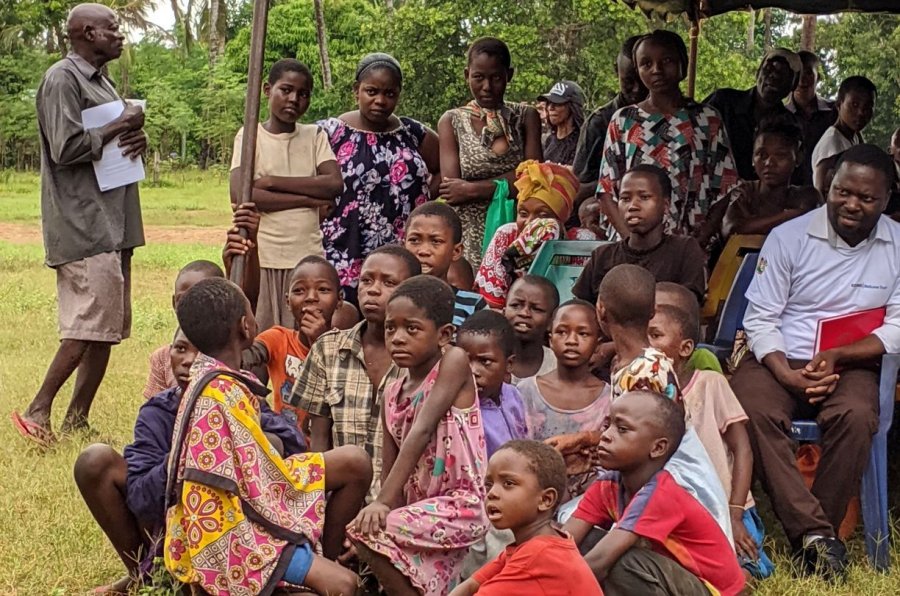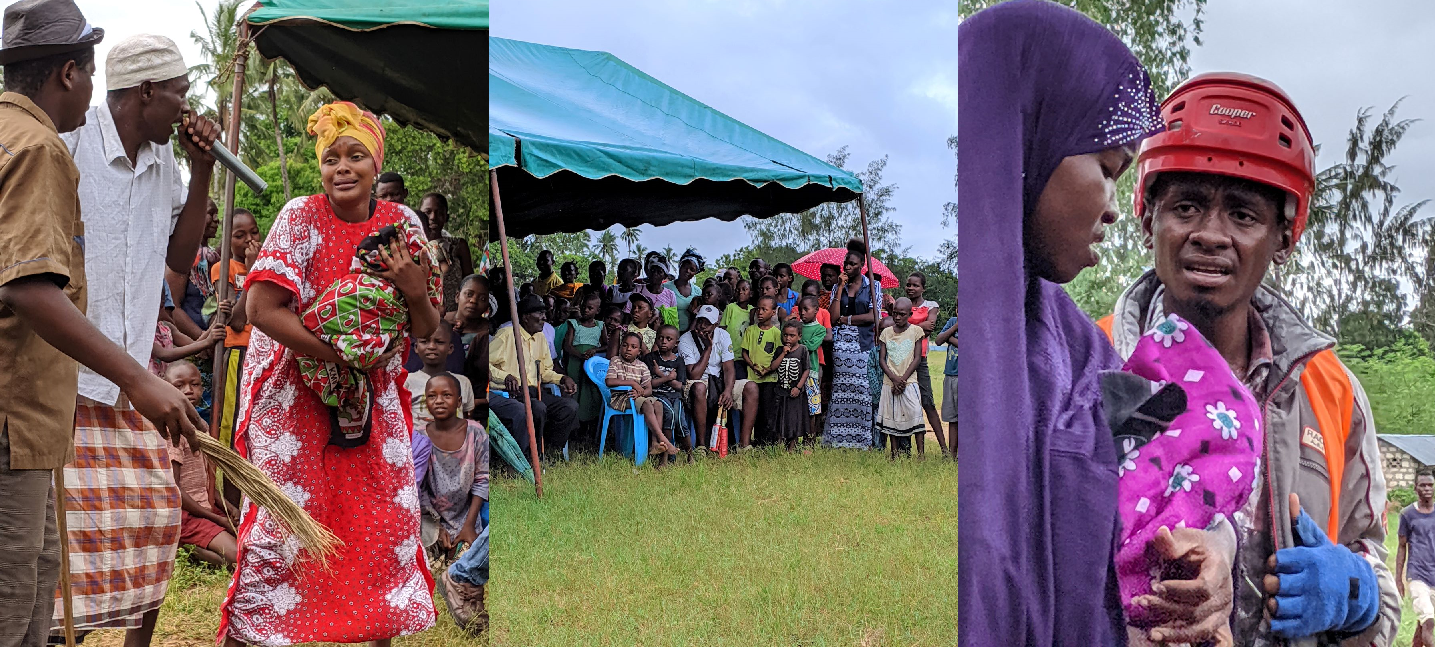
Pneumonia accounts for 15% of all deaths in children under 5 years, according to the World Health Organization. World Pneumonia Day is marked on 12 November every year to raise awareness about the disease, promote interventions to protect against, prevent and treat pneumonia, and generate action to continue fighting the disease.
In 2019, a team from the London School of Hygiene & Tropical Medicine (LSHTM) and KEMRI-Wellcome Trust Research Programme worked with Ministry of Health staff in Kilifi County, Kenya, to organise a series of events to mark World Pneumonia Day. This included five short films, two radio broadcasts and three community theatre events.
In this short film, Dr Ifedayo Adetifa, LSHTM Associate Professor based at KEMRI-Wellcome Trust Research Programme, talks about the burden of pneumonia:
Ifedayo has spent the past five years working as a clinical epidemiologist on the Pneumococcal Conjugate Vaccine Impact Study (PCVIS) funded by Gavi, The Vaccine Alliance which is a partnership between LSHTM, KEMRI Wellcome Trust Research Programme and Kilifi County Ministry of Health. PCVIS has generated some of the most compelling evidence currently available about the impact of PCV10 vaccine in sub-Saharan Africa, addressing important questions such as ‘What is the impact of PCV10 on pneumonia and invasive pneumococcal disease?’ and ‘Is the vaccine cost-effective?’
Dr Juliet O. Awori is a PhD student at LSHTM who is researching care seeking for pneumonia, and in this film she describes the importance of recognising the signs, seeking care and appropriate treatment.
Dr Mary Kaniu is a student on the LSHTM Distance Learning Master’s in Epidemiology and is based at KEMRI Wellcome Trust Research Programme. In this film, Mary talks about protective and preventive measures against pneumonia:
Mary is also a coordinator of the Fractional Dose Pneumococcal Conjugate Vaccine trial, managed by Dr Kate Gallagher, LSHTM Assistant Professor of Epidemiology based at KEMRI-Wellcome Trust Research Programme. The trial is investigating the immunogenicity of reduced doses of two pneumococcal conjugate vaccines, PCV10 and PCV13. PCVs are the most expensive vaccines in the Kenyan routine child immunisation schedule. As Kenya becomes more affluent and financial support from Gavi, the Vaccine Alliance, reduces, it is essential that there is good evidence available to inform policy decisions about continued use of PCVs in Kenya. If either of the PCVs is found to be effective at a lower dose, this has a significant implication for the ongoing affordability of the vaccine programme in Kenya.
Dr Kate Gallagher says about the study: “Early childhood vaccination with the full course of routine immunisations is critical to protect children from pneumonia. PCV10 specifically has been shown to reduce all-cause radiologically confirmed pneumonia in under-5s by 50% in Kilifi. The FPCV trial will determine whether smaller volumes of the vaccine are as protective as the full doses, given some early evidence that this may be the case. This may make vaccine delivery affordable and sustainable long-term in Kenya and other lower-middle income countries.”
Anthony Scott, Professor of Vaccine Epidemiology at LSHTM, has worked in Kilifi for over two decades. He oversees the joint programme of work between LSHTM and KEMRI Wellcome Trust Research Programme on invasive bacterial disease, including Streptococcus pneumoniae, the most common cause of community acquired bacterial pneumonia. His work covers the spectrum from testing vaccine effectiveness through implementation at scale to vaccine policy, and he has a strong commitment to ensuring that scientific evidence provides answers to policy-relevant questions.
Prof Scott said: “We have demonstrated the effectiveness of PCVs in reducing pneumococcal pneumonia. We now need to work alongside governments in sub-Saharan Africa to present evidence-based options to take the PCV programme forward in the most cost-effective way possible, whether through smaller volumes, fewer doses, a different administration schedule or a combination of strategies. We are pursuing all these avenues through a programme of research in Kenya and other sub-Saharan African countries”.
Professor Beate Kampmann, Director of the LSHTM Vaccine Centre, adds that far too many children still die of this potentially preventable and treatable lung disease: “Diverse researchers at LSHTM are making significant contributions to the field: from describing the epidemiology of pneumonia, to leading many past and ongoing trials of life-saving vaccines against pneumococcal disease. In addition to our work with KEMRI Wellcome Trust Research Programme, our researchers at MRC Unit in The Gambia at LSHTM and many other endemic settings and are involved in driving the science and policy agenda on pneumonia.”
Our postgraduate taught courses provide health practitioners, clinicians, policy-makers, scientists and recent graduates with a world-class qualification in public and global health.
If you are coming to LSHTM to study a distance learning programme (PG Cert, PG Dip, MSc or individual modules) starting in 2024, you may be eligible for a 5% discount on your tuition fees.
These fee reduction schemes are available for a limited time only.

